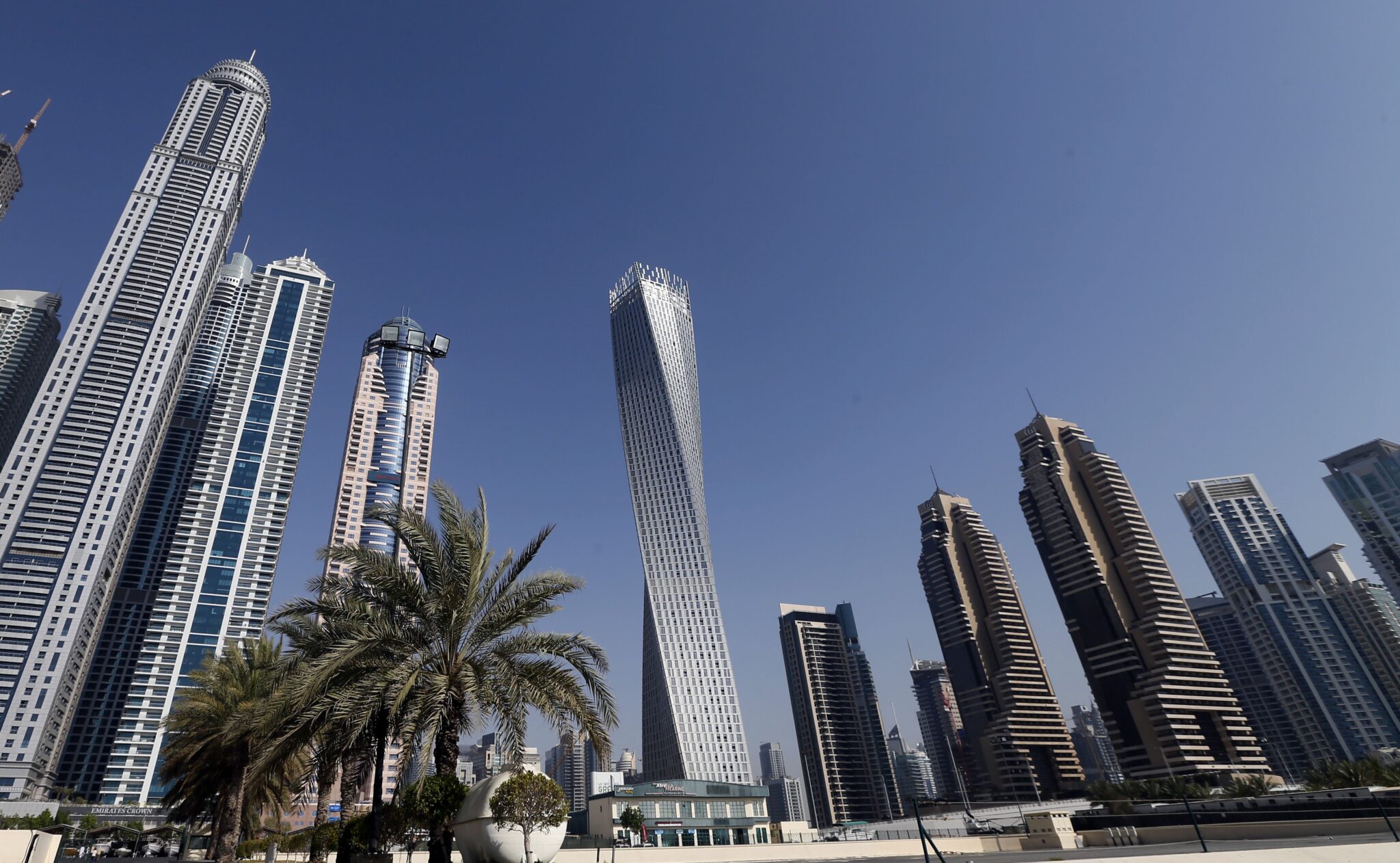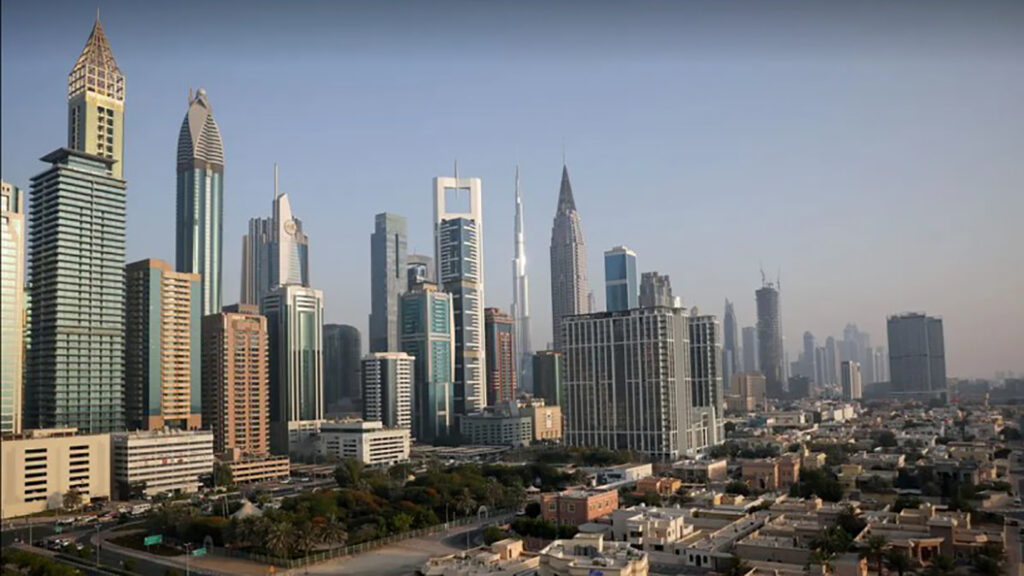United Arab Emirates
We have a team of professionals to help you with all your business needs. So, that you can focus on business expansion in UAE.
Please feel free to email us on
WHY UAE?
The United Arab Emirates (UAE) ranks first among the countries most attractive place to foreign direct investment in the Middle East (ME) and African region. UAE is an elective monarchy formed from a federation of seven emirates, consisting of Abu Dhabi, Ajman, Dubai, Fujairah, Ras Al Khaimah, Sharjah and Umm-Al-Quwain. UAE is famous for its tallest human-made structure, the Burj Khalifa, and the Burj-Al-Arab, one of the tallest hotels building in the world. After Saudi Arabia, UAE has the second-largest economy in the Arab world with a GDP of USD 414 billion wherein its one-third of the GDP comes from oil revenues. Its free trade zones attract foreign investors by offering 100% foreign ownership and zero taxes.

ADVANTAGES
Starting a business involves numerous procedures which need to be taken care of with utmost scrutiny. A successful business is a mixture of various factors, some of the key factors that contribute to making UAE an attractive business destination are:
A Leading Business Hub
For foreign investors, companies, and entrepreneurs, UAE is one of the best places to flourish business, as it offers countless opportunities. It emerged as a global investment and tourism hub and undoubtedly as a dream destination for every businessman to start a business.
Foreign Income and Tax Treaties
The UAE has signed around 128 double taxation treaties with other countries, with 90 already being in force. Moreover, it has joined the Organisation for Economic Co-operation and Development (OECD), inclusive framework on Base Erosion and Profit Shifting (BEPS), and also signed the OECD Multilateral Convention to Implement Tax Treaty Related Measures to prevent BEPS.
Stamp Duty
Currently, there are no stamp duties levied in the UAE. However, registration/notary or attestation fees, are common in most other jurisdictions, and there may be registration/notary or attestation fees upon the incorporation of a company. Certain Free Zones may levy an administrative fee for a transfer of shares to other UAE companies.
Real Estate Transfer Fees
Currently, there are no property taxes applied in the UAE. However, a registration/transfer fee is levied on the direct and, in specific circumstances, an indirect transfer of real property (e.g. a transfer of shares in a company holding real estate). This fee is also levied on partial transfers under certain circumstances.
Add Your Heading Text Here
SIMPLE TAX REGIME

Add Your Heading Text Here
Individual Tax
There is no income tax levied on individuals in the UAE, it levies a corporate tax on oil companies and foreign banks only.
Corporate Tax
Corporate Tax is levied only on oil companies and foreign banks.No other industry is liable for corporate tax. Moreover, the businesses registered in the free zones are exempt from corporate tax for a certain time and such time can be extended.
Excise Tax
Excise Tax is levied on specific goods which are typically harmful to human health or the environment. Such as; carbonated drinks, energy drinks, tobacco, and tobacco products.
Value Added Tax
VAT was introduced in the United Arab Emirates on 1 January 2018. The general VAT rate is 5% and applies to most goods and services, with some goods and services subject to a 0% rate or an exemption from VAT (subject to specific conditions being met).VAT is levied on a majority of goods and services. VAT applies equally to tax-registered businesses managed in the UAE mainland and in the free zones. The transfer of goods between designated zones is tax-free.
Double Taxation Agreements
UAE has signed several agreements with other nations to avoid double taxation on investments overseas. The agreements are aimed to:
- promote the development of the country’s goals, diversify its sources of national income;
- eliminate double taxation, indirect taxes, and tax evasion;
- eliminate obstacles related to cross-border trade and foreign investment;
- provide protection to taxpayers from double taxation, whether direct or indirect; and
- promote the exchange of goods and services and the free movement of capital.
UAE COMPANIES
In the UAE, there are many options available to Foreign Companies and Individuals who are interested to register their company. Carrying out a business in UAE without the necessary licenses and permits is considered illegal and can call for huge penalties and fines. Some of the most common types of entities established in UAE are as below:
Foreign Investment Companies
Under a foreign investment company, the ownership percentage of the Foreign Investor can be up to 100%. Foreign Investment Companies should be licensed by the competent licensing authorities in accordance with the provisions of the Foreign Direct Investment Law.

Limited Liability Company (LLC)
Currently, it is the most common form of business entity formed in the UAE. Minimum 2 and maximum of 50 persons are required in an LLC, whose liability is limited to their shares in the company’s capital.

Branch / Representative Office
This type of company is mostly preferred by most foreign companies as it allows them to retain 100% control. Though these offices are completely licensed entities, it is permitted to only carry out activities similar to that of its parent entity. They are also excluded from carrying out any kind of trading activity in the UAE.

Professional Service Company
This type of company can be set up with a professional license and undertakes directly a specific profession as its activity. Partners of a civil company have 100% ownership in their business. These Firms may only practice the specific activities for which they have obtained the professional license and their activities will not extend to commercial matters.
Free Zone Companies
There are many Free Zones in UAE. These Free Zones are classified on the basis of the activities they permit. These companies are administered autonomously by their own administrative authority. Free Zones permit 100% foreign ownership and a company licensed in a Free Zone is permitted to carry out its business within that zone.
To establish these kinds of companies no requirement for a UAE National as a Partner or a Local Agent exist.
Offshore Companies
Generally an Offshore Company is a company registered with the primary purpose of doing business outside its jurisdiction. This type of company is usually set up in a favorable jurisdiction, where there are no corporate or personal income taxes, reporting requirements or restrictions on companies’ employment policies. Setting up an offshore company does not entitle you to obtain a residence visa in UAE.
After Saudi Arabia, UAE has the second-largest economy in the Arab world with a GDP of USD 414 billion wherein its one-third of the GDP comes from oil revenues. Its free trade zones attract foreign investors by offering 100% foreign ownership and zero taxes.

Author: Chandrawat & Partners
Topic: Doing Business in Dubai
Contact Us
Get in touch with the right people to get the right help in setting up your business in UAE.
Contact us at: [email protected]
